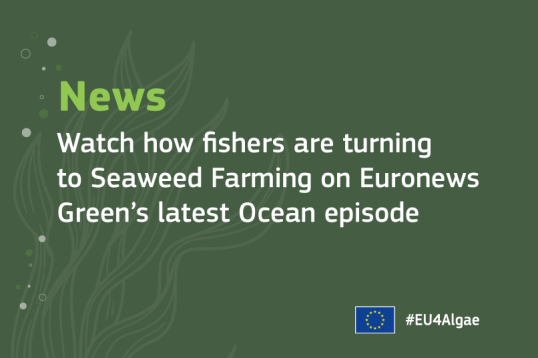
In the latest Ocean episode with Euronews Green (follow the link to learn more and watch the full episode!), we journey through northwest Ireland’s Mulroy Bay where former fisherman Jerry Gallagher shows us how he turned to aquaculture after fish stocks dwindled, making traditional fishing no longer economically viable. Recognising the potential of the pristine Irish coastline, Jerry expanded into seaweed farming, growing edible varieties like Atlantic Wakame:
"The effort per catch now is huge", Jerry said.
Mulroy Bay in County Donegal, Ireland - Euronews
His daughter, Lorraine Gallagher, who studied human nutrition, manages their company, The Seaweed Company Green Turtle. She was inspired by the health benefits of seaweed and saw a significant opportunity in the industry:
“I realised that we have such an amazing coastline here in Ireland. My family worked in aquaculture, so my brain just started ticking and I said, I think there's a huge potential here with seaweed!”, Lorraine stated.
The Gallaghers' seaweed farm spans dozens of hectares, and their processing plant turns the harvest into dry flakes for the food industry. The seeding begins in October and by April the seaweed is ready for harvest. Jerry Gallagher says that this not only meets the rising demand for healthy, locally sourced seaweed but also provides employment during fishing off/quieter seasons, leveraging the skills and passion of former fishers.
Lorraine and Jerry Gallagher at their seaweed farm - Euronews
With the demand for seaweed rising across Europe, and increasingly seen as part of a healthy diet, local organic producers like Jerry and Lorraine Gallagher highlight the environmental benefits over imports. Moreover, harvested from the clean waters of Mulroy Bay, this seaweed can even be eaten raw:
“It's absolutely delicious. It has a beautiful, crunchy bite. Very sweet. The saltiness of the sea. It's beautiful”, Lorraine affirms.
Manual harvesting of cultivated seaweed – Euronews
Number of businesses producing algae in the EU
The seaweed industry in Europe, historically limited to a few coastal communities, is experiencing growth as more businesses enter the field. According to data from the EU Science Hub in 2022, France leads with 169 algae-producing businesses, followed by Spain with 47, and Ireland with 27. Other countries with notable numbers of seaweed businesses include Italy, Portugal, Germany, the Netherlands, and Denmark. This expansion reflects the increasing recognition of seaweed farming's economic and environmental benefits.
Additional information
Join the #EU4Algae conversation and don’t forget to keep an eye on the EU4Algae Forum to stay updated and learn more about the ongoing activities, initiatives and updates on the development of the EU4Algae Forum online.
To contact us, please use the following email: contact eu4algae [dot] eu (contact[at]eu4algae[dot]eu).
eu4algae [dot] eu (contact[at]eu4algae[dot]eu).
Details
- Publication date
- 12 June 2024
- Author
- Directorate-General for Maritime Affairs and Fisheries




